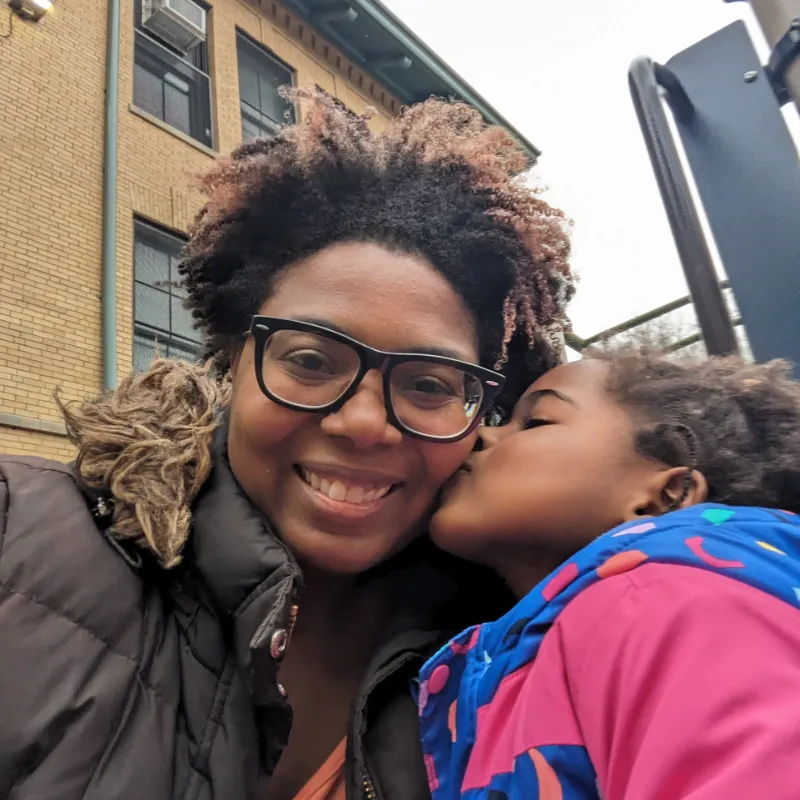Bringing new life into the world can be a profound and transformative experience. However, for Black mothers, this journey often comes with unique challenges and disparities that can impact both their health and the well-being of their babies. In 2024, Black women in the United States are still 3-4x more likely to die from pregnancy related complications than white women. In celebration of Black Maternal Health Week (April 11-17, 2024), we are sharing stories from Black mamas on staff at Provide who have agreed to share their experiences to shine a light on systemic issues.
Dannie Shaw serves as Provide’s Deputy Director of Organizational Strategy and is a single mother to a four-year-old daughter. She shared how her experience into parenthood was different as a queer person who chose to be a solo parent.
“My journey was fraught with stigma, judgment, and doubt, but not from myself—I have always been very assured of my own north star,” Dannie said. “I heard these things from other people and systems—and let’s not forget that even many otherwise excellent healthcare insurance plans and policies still place unnecessary and costly barriers for queer and single people who seek access to fertility treatments to build their families.”
Dannie’s reflection underscores the intersecting challenges Black queer individuals can face when navigating parenthood. In a society that often fails to recognize or accommodate diverse family structures, Dannie’s experience both challenges stereotypes and sheds light on the need for inclusive policies and support systems.
In one sense, Dannie’s career experience in maternal health and economic equity prepared her to confront many of the ways Black mothers are harmed by systems of care. However, it was still painful to experience these things firsthand.
“For all of my life, as a Black woman, I’ve been applauded for NOT having children or being pregnant. I made the choice to become a solo black parent with full knowledge of the many cultural and political narratives used to deny systemic racism, and to denigrate Black motherhood generally, and stigmatize single Black motherhood even more specifically,” Dannie said.
“It is one thing, though, to understand this cognitively. It is another to hear this narrative out of the mouths of folks you love and trust when you share your tender and vulnerable dream of loving a child,” she expanded.
Despite the hurdles Dannie has faced, her story is a happy one.
“My decision to solo parent, to find such delight in it, and of course, my kiddo’s soulful existence stand in direct contradiction to all those narratives,” Dannie said. “Being a Black mother has meant a chance to heal generational and individual trauma. It means a chance to experience daily joy and to facilitate those experiences for my child in spite of a culture and society that doesn’t prioritize or value those experiences, particularly for Black people.”
Her leadership at Provide is a call to action to build the world where everyone is supported in their reproductive and sexual health decisions.
“I hope we use the lessons of the current landscape to build a system of care that is values-based, affirming, free from stigma, culturally-responsive and administered by compassionate, skilled providers. Because I think a future where Black mothers and birthing people are supported and valued is a future where more of us are free to create, contribute, and thrive—to do more than survive.”

